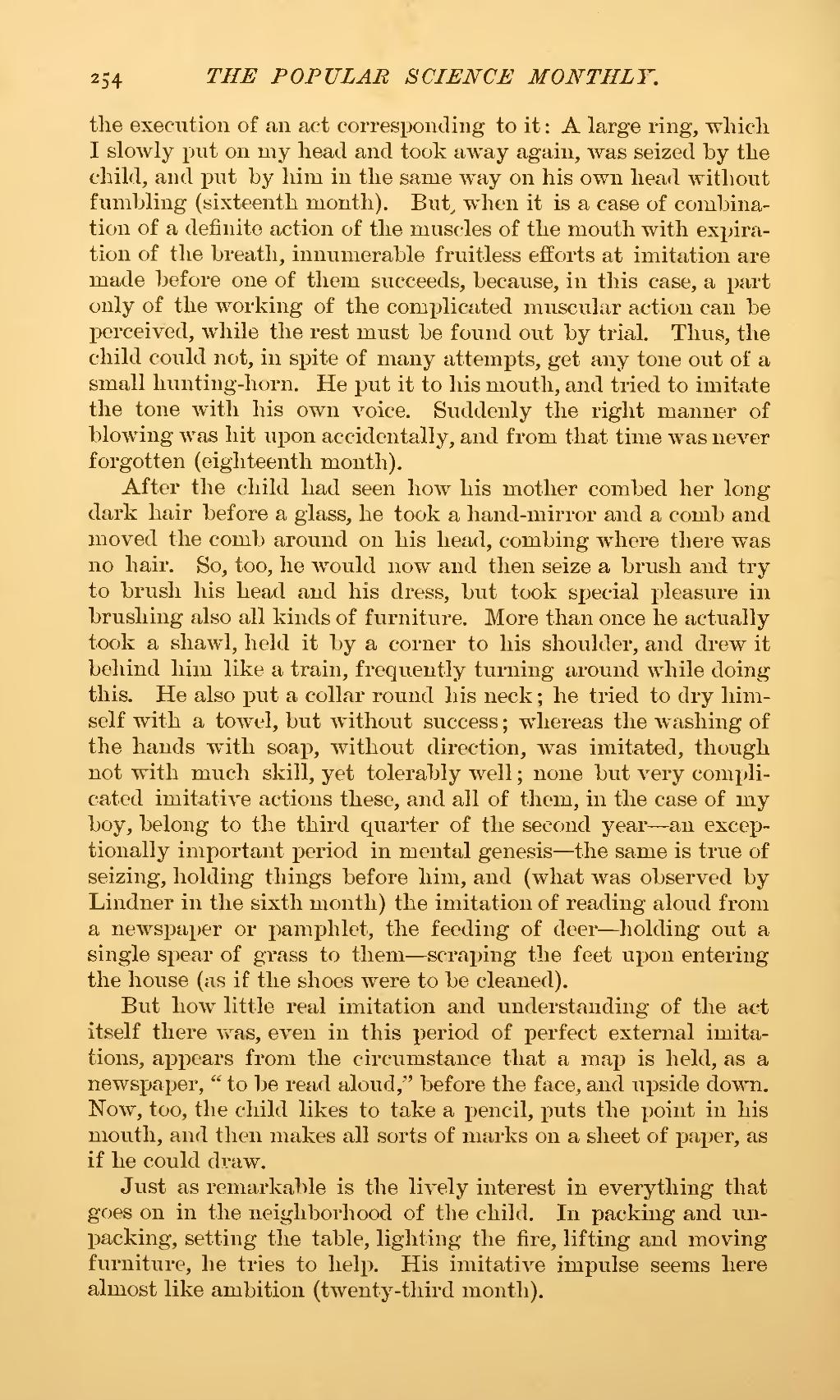the execution of an act corresponding to it: A large ring, which I slowly put on my head and took away again, was seized by the child, and put by him in the same way on his own head without fumbling (sixteenth month). But when it is a case of combination of a definite action of the muscles of the mouth with expiration of the breath, innumerable fruitless efforts at imitation are made before one of them succeeds, because, in this case, a part only of the working of the complicated muscular action can be perceived, while the rest must be found out by trial. Thus, the child could not, in spite of many attempts, get any tone out of a small hunting-horn. He put it to his mouth, and tried to imitate the tone with his own voice. Suddenly the right manner of blowing was hit upon accidentally, and from that time was never forgotten (eighteenth month).
After the child had seen how his mother combed her long dark hair before a glass, he took a hand-mirror and a comb and moved the comb around on his head, combing where there was no hair. So, too, he would now and then seize a brush and try to brush his head and his dress, but took special pleasure in brushing also all kinds of furniture. More than once he actually took a shawl, held it by a corner to his shoulder, and drew it behind him like a train, frequently turning around while doing this. He also put a collar round his neck; he tried to dry himself with a towel, but without success; whereas the washing of the hands with soap, without direction, was imitated, though not with much skill, yet tolerably well; none but very complicated imitative actions these, and all of them, in the case of my boy, belong to the third quarter of the second year—an exceptionally important period in mental genesis—the same is true of seizing, holding things before him, and (what was observed by Lindner in the sixth month) the imitation of reading aloud from a newspaper or pamphlet, the feeding of deer—holding out a single spear of grass to them—scraping the feet upon entering the house (as if the shoes were to be cleaned).
But how little real imitation and understanding of the act itself there was, even in this period of perfect external imitations, appears from the circumstance that a map is held, as a newspaper, "to be read aloud," before the face, and upside down. Now, too, the child likes to take a pencil, puts the point in his mouth, and then makes all sorts of marks on a sheet of paper, as if he could draw.
Just as remarkable is the lively interest in everything that goes on in the neighborhood of the child. In packing and unpacking, setting the table, lighting the fire, lifting and moving furniture, he tries to help. His imitative impulse seems here almost like ambition (twenty-third month).
